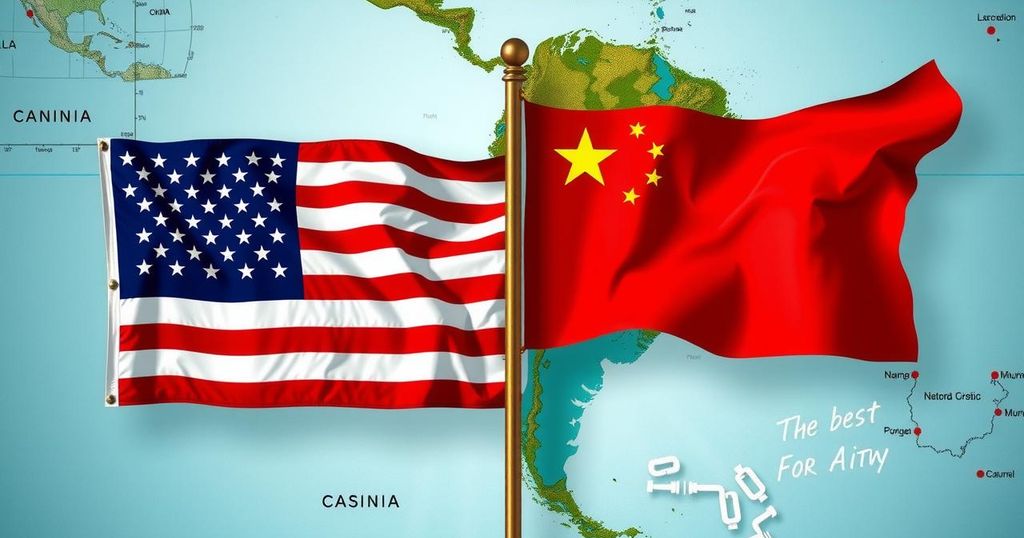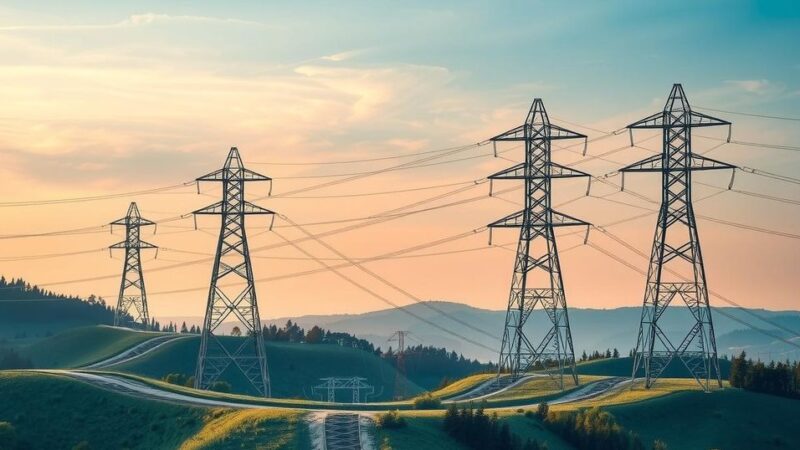The article discusses China’s growing influence in Latin America, notably in the resource and energy sectors, which poses a challenge to Western powers, particularly the United States. It highlights China’s substantial investments and strategic initiatives, emphasizing concerns regarding geopolitical power shifts and the ramifications of potential U.S. policy changes under a Trump administration.
The geopolitical landscape concerning Latin America is evolving due to China’s expanding influence in the region. Beijing’s significant investments in Latin American energy sectors, particularly in renewable resources, are alarming Western powers, as it increasingly dominates critical supply chains, notably lithium and other materials essential for clean energy and technology manufacturing. China’s ownership of substantial reserves and production capabilities in these areas raises concerns about a potential Chinese hegemony in the region, compelling competitors like the United States to reconsider their strategies in dealing with these emerging threats.
China’s dominance in renewable energy technology has been evident, accounting for approximately 90% of installed wind and solar solutions in Latin America. Furthermore, China’s Belt and Road Initiative, which has engaged 22 Latin American countries, has fortified its geopolitical ambitions. With recent acquisitions, including major stakes in Chile’s lithium production and control over energy distribution in Peru, China’s influence has reached unprecedented levels. Political analysts suggest that China views this expansion as a crucial stepping stone in exerting power throughout the Western Hemisphere.
Under the Biden Administration, the U.S. has initiated efforts to bolster its supply chains in response to China’s growing presence, but these have faced challenges. However, a potential re-election of Donald Trump may shift U.S. policy towards a more aggressive stance against China in Latin America, according to experts. The Council on Foreign Relations highlights that Trump’s promised trade measures might catalyze geopolitical conflicts as the U.S. seeks to counterbalance China’s growing influence in the region. This concern is intensified by the perception that China is leveraging its relationships with authoritarian regimes such as those in Venezuela and Cuba to further its geopolitical agenda.
The article examines the implications of China’s increasing presence in Latin America while highlighting its strategic investments in the region’s energy sector and critical minerals. As China ascends as South America’s largest foreign trading partner through the Belt and Road Initiative and various trade agreements, concerns arise about Beijing’s intentions, particularly regarding its relationships with authoritarian governments. This evolving geopolitical landscape presents challenges for Western powers, particularly the United States, which is exploring ways to fortify its position amidst these developments.
In summary, China’s expanding foothold in Latin America, particularly in the energy and resource sectors, is reshaping the geopolitical dynamics in the region. As competition escalates, especially in light of the potential for Donald Trump’s re-election, tensions between the U.S. and China may rise. The prospected confrontations emphasize the urgency for Western powers to establish robust strategies to address the shifting dynamics powered by China’s ambitions in Latin America.
Original Source: oilprice.com






